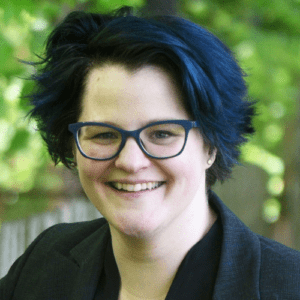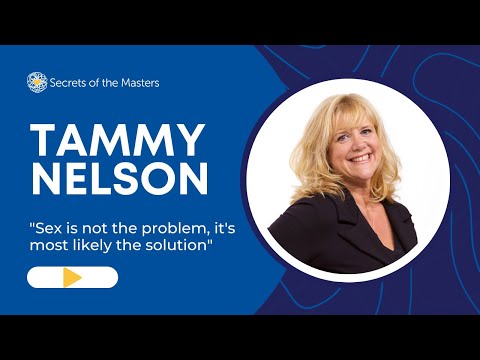When I first began having long(ish)-term sexual relationships during my college years I believed an old-fashioned narrative, which I think a lot of us are taught, about how desire works. We’re told it’s all passion and “spark” early in a relationship, and that lasts a couple of years maybe; then we have kids or buy a fixer-upper house or generally get busy with work and life, and the spark fizzles out, especially after 50, when apparently every hormone we ever had floats away on a sea of aging and we’re left, sexless and neutered, to hold hands at sunset. Our options, we’re told, are either to accept the fizzling of our desire for sex or to fight against it, to invest our time, attention, and even our money in “keeping the spark alive.”
Well, it turns out every part of that narrative is not merely wrong, but wrongheaded. A lot of books about sex in long-term relationships are about “keeping the spark alive,” and they too are wrongheaded. They’re so twentieth century, with their rigid gender scripts and cringingly oversimplified ideas about sex and evolution.
I call this mess of wrongheadedness the desire imperative. The desire imperative says: At the start of a sexual and/or romantic relationship, we should feel a “spark,” a spontaneous, giddy craving for sexual intimacy with our (potential) partner that might even feel obsessive. The sparky desire we’re supposed to feel at the beginning of a relationship is the correct, best, healthy, normal kind of desire, and if we don’t have it, then we don’t have anything worth having. If we have to put any preparation or planning into our sex lives, then we don’t want it “enough.” If our partner doesn’t just spontaneously want us, out of the blue, without effort or preparation, on a regular basis, they don’t want us “enough.”
The desire imperative puts desire at the center of our definition of sexual well-being. It says there is only one right way to experience desire, and without that, nothing else matters. And so people worry about sexual desire. If desire changes or it seems to be missing, people worry that there’s something very wrong. It’s the most common reason couples seek sex therapy.
Here’s the irony of the desire imperative: Does all that worry about “spark” activate the accelerator and make it easier to want and like sex? On the contrary, worry mainly hits the brakes and puts sex further out of reach.
But there’s an alternative: center pleasure. Desire is not what matters. Not “passion,” not “keeping the spark alive.”
Pleasure is what matters. Center pleasure, because great sex over the long term is not about how much you want sex: it’s about how much you like the sex you’re having. Pleasure happens when we feel safe enough. Trusting enough, healthy enough, welcome enough, at low-enough risk. Everyone’s threshold for “enough” is different, and it changes from situation to situation. But when we create that safe-enough context, our brains have the capacity to interpret any sensation as pleasurable.

If I wanted to spark controversy, I’d say there’s no such thing as a sexual desire problem, and all the news articles and think pieces and self-help books and medical research focused on a “cure” for low desire are irrelevant. The “cure” for low desire is pleasure. When we put pleasure at the center of our definition of sexual well-being, we eliminate any need to worry about desire.
But I’m not here for controversy; I’m here to make your sex life better. So I’ll just say: don’t sweat desire. If you’re worried about your partner’s low desire, ask them about pleasure. If you’re worried about your own low desire, talk to your partner about pleasure. Desire can be a fun bonus extra; it’s as important as simultaneous orgasms, which is to say, a neat party trick but not remotely necessary for a satisfying long-term sex life.
And yet. In my unscientific survey of a few hundred strangers, some people reported that what they want when they want sex is spontaneity: “I hate talking about having sex before I have sex. Like if it can’t happen naturally, I kinda don’t want it.”
Oof, that word: naturally.
If the idea of talking about sex, or making a plan before you have it, feels “unnatural,” hi, hello! Welcome! I acknowledge the reality that talking about sex might deflate spontaneous desire, but I ask you to consider the possibility that planning sex can be part of the pleasure, and talking about sex is not just natural: it’s part of the erotic connection between you and a partner.
Maybe every sexual experience you’ve had in response to spontaneous desire has been better than any sex you’ve ever had in response to a plan. But did you really not plan before any of that great “spontaneous” sex? When you’re in a new or emerging relationship, do you not spend time daydreaming about a hot date, making plans for dinner or an adventure together, exchanging flirtatious texts, emails, phone calls, whispers? Hot-and-heavy, falling-in-love horniness is often accompanied by a lot of planning and preparation and, yes, even talking about sex in advance. Do you not spend time getting ready for it, grooming, dressing carefully, making sure you smell good?
Is that . . . “natural”?
The myth that the “natural” way to have sex is for it to be spontaneously borne of mutual horniness, without having to talk about it or make a plan, is linked to the desire imperative, which insists that without spontaneous desire, we don’t want sex “enough.” If we have to plan it, there’s a problem.
But consider what our lives are like—what our contexts are like. We schedule large portions of our days, often weeks or even months in advance. We fill our calendars with work and school and family and friends and entertainment. We fill our bodies with stress and a sense of obligation to others and to ourselves. We impose modern exigencies that don’t even create adequate opportunity for natural sleep, much less unplanned yet mutually enthusiastic sex.
I’d like people who adore spontaneity to consider the possibility that spontaneity matters less than pleasure. To that end, I want to acknowledge the real phenomenon of spontaneous desire potentially evaporating when you talk about sex. It’s true. I’ve felt it . . . and I want to show you how little it matters.
Back in my 20s, I had an on-again, off-again relationship with someone I’ll call Coen (not his real name). At a certain point, we agreed we’d stop having sex because it was only making our lives more complicated and miserable. Then, inevitably, one night after a party, I went back to his place for coffee and a chat, and he made a move.
Honestly, it was sexy. I felt all the excitement of “I want to, but I shouldn’t.”
But we’d had good reasons for our decision to stop having sex. My “I shouldn’t” wasn’t just a playful “Ooh, I’m a bad girl,” it was a “We’re going to damage each other badly if we do this,” a “We’re going to break each other’s hearts. Again.”
So instead of kissing him back, I said, “We decided not to do this.”
And Coen said, “But what if just this once?”
While he kissed my neck, I reiterated the reasons we’d decided not to do this. For example, he was still in love with his ex. And when he had sex with someone, he habitually fell into the role of boyfriend, so I’d feel like he was acting like my boyfriend and he’d feel like he was waiting for his ex to come back. So not only were we totally unable to meet each other’s needs as romantic partners, we were destroying the friendship we’d had before we started having sex.
Coen said, “What if we agree that I won’t do that?”
Valiantly resisting the pull of desire, I said, “Can you? Because I’m too busy and too exhausted to go through that again.”
He actually thought about it. And he said, “Yes.”
And I believed him.
Now, in a romance novel or a TV show what would happen next is we’d both feel set free from the ambivalence that was holding us back and we’d slam our bodies together like we’d each been released from a slingshot. In a way, I wish that were what had happened, because then I could say, “See? Talking about it makes it extra horny!”
But in real life, the opposite happened.
My ambivalence had been hot air keeping the balloon of my lust swollen and ready. When I resolved my ambivalence by talking about it, my horniness deflated. Coen stood up to go lock his apartment door, and by the time he got back, seconds later, I felt neutral about having sex.
What would you think, in a moment like that? Would you worry that something had gone wrong? Would you decide the sex wasn’t worth having if the pulsing horniness evaporated? Would you wish you hadn’t protected you and your partner from unwanted consequences if it meant preserving the spontaneity? I’m sure the person who wrote, “If it can’t happen naturally, I kinda don’t want it,” would have stopped everything there. No sex for them that night.
But my story doesn’t end with the deflating of my spontaneous desire. Coen and I did have sex that night, and it was really fun; it was playful instead of desperate. And the next day, he didn’t fall into his old habits.
It worked out this way because I’d already begun deconstructing the desire imperative in my own life. It’s true that talking about it and resolving the “we want to but we shouldn’t” ambivalence drained away my hot craving, but even then I knew that’s not a bad thing. When you center pleasure, instead of desire, you have access to pleasurable experiences that minimize the risk of unwanted consequences.
Imagine if it hadn’t been emotional consequences but physical health or social consequences that I was considering. Suppose I’d said, “This is very hot, but do you have a condom?” Or “. . . but I need to pause and get some lube.” Or “. . . isn’t your other relationship monogamous?” Any of these can deflate spontaneity. But imagine the unwanted consequences people experience if they follow the desire imperative. Sexually transmitted infection, unwanted pregnancy, damage to your reputation, hurting someone’s feelings, having your own feelings hurt, these and more are all real and important potential consequences that deserve priority over protecting “spontaneity.”
A lot of sex educators say that “interrupting” sex this way, to talk about something like birth control or STI prevention or other emotional or physical safety issues, doesn’t impact desire, and I’m sure for some people it doesn’t. But for other people, people like me, it may. But that’s no big deal, because desire is not the point. Pleasure is the point.
I don’t expect you to believe me right away. I know you’ve been taught to worry about desire. It might even feel troubling or problematic to say that desire doesn’t matter. Maybe you’re thinking, What could you possibly mean, not worry about not wanting it and just enjoy it instead? Are you telling me to enjoy sex I don’t want???
On the contrary! I’m saying: imagine a world where all of us only ever have sex we enjoy. And anything we don’t enjoy, we just don’t do! We don’t do it, and—get this—we don’t worry about not doing it! When we put pleasure at the center of our definition of sexual well-being, sex we don’t like is never even on the table.
***
From the book Come Together: The Science (and Art!) of Creating Lasting Sexual Connections by Emily Nagoski, PhD. Copyright © 2024 by Emily Nagoski. Published by Ballantine Books, an imprint of Random House, a division of Penguin Random House LLC.
ILLUSTRATION © NATA
Emily Nagoski
Emily Nagoski, PhD, is the New York Times bestselling, award-winning author of Come Together (2024), Come as You Are (2021) and co-author, with her sister, Amelia, of Burnout (2019). She earned an MS in counseling and a PhD in health behavior, both from Indiana University, with clinical and research training at the Kinsey Institute. Now she combines sex education and stress education to teach women to live with confidence and joy inside their bodies.
Photo Credit: Paul Specht














